Incubating future movements in travel and culture
Words Allison Reiber DiLiegroImages Sanda VuckovicVideo Eldon van Aswegen
Since Portugal charted its course as a land of explorers centuries ago—the world’s most robust fleet of ships at its ports—Lisbon has been home to those seeking new frontiers. Today, rather than nations in no need of discovery, that new world is web3 and its explorers are the start-up founders, builders, and digital artists who are, at this moment, creating the future of the web for the rest of us. Thanks to a favorable ecosystem and the centrifugal force of the annual Web Summit conference, many of these actors have made their home in Lisbon. “With the new reality that you can work anywhere,” says Rodrigo Machaz, the owner of Memmo Hotels, “it’s creating a melting pot of cultures and innovation and bringing in really creative minds.”
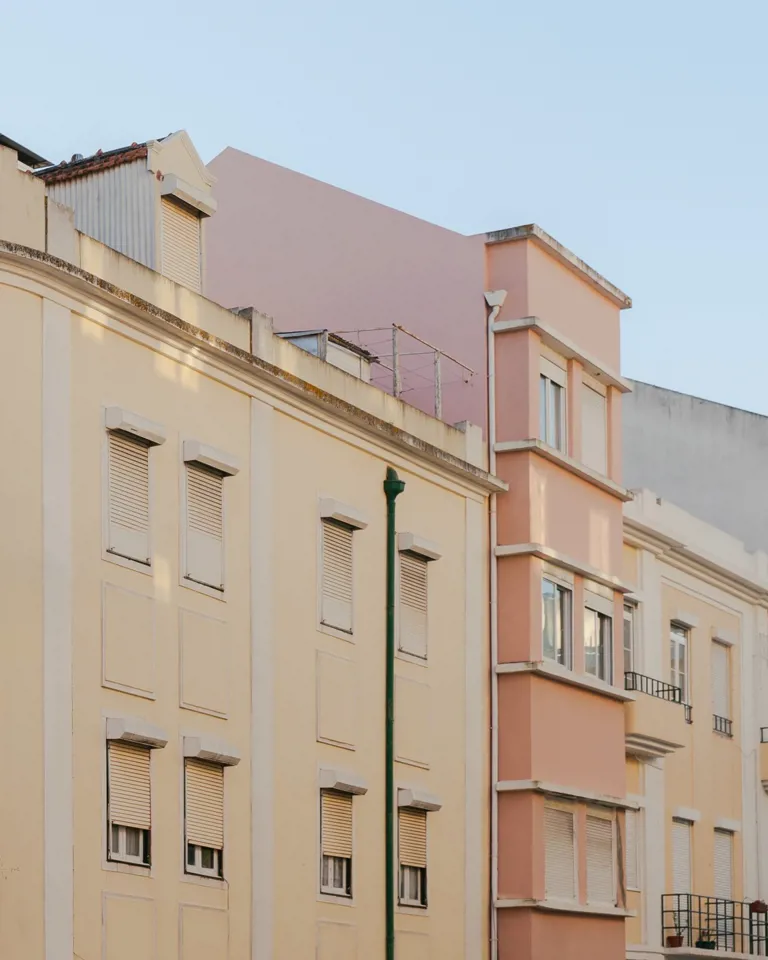
Home to the annual Web Summit, Lisbon has cemented itself as an epicenter of the tech world.
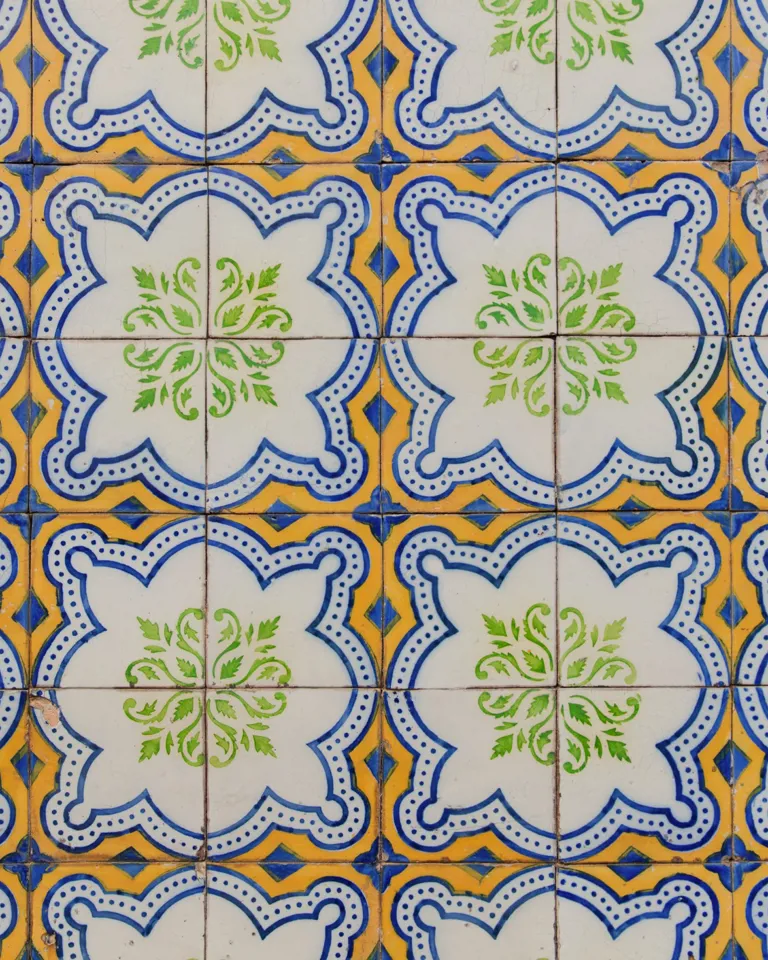
Despite the rapid innovation, the city has managed to hold onto its rich culture and heritage.
But walking the streets, we find that Lisbon does not feel like an epicenter of the tech universe—rather, it’s distinctly of this earth: The city is lively and vibrant, with expats and locals young and old buzzing about sunny streets. The iconic, tile-covered facades glint in the light, making a home for coworking spaces to classic tabernas. Despite the rapid growth and influx of expats, the city has remained distinctly itself. At Further, we were eager to learn what Lisbon can teach us about how to step into the new digital world while staying rooted in our own.
“I’ve worked in the physical art world for the past 14 years, but I got into the digital space because I think it can bring us so much more impact in the arts,” says Pauline Foessel, the founder of Artpool, a platform that aims to make the digital art space more accessible to creators and buyers. Art enthusiasts can discover quality works curated by leading art professionals and purchase them in the form of an NFT. While the value lies in the NFT—a contract on the blockchain that proves ownership—the buyer can print the work to hang in their home. Even as she expands the bounds of digital art, Foessel says, “You still need to go to the museums, walk in the streets to see street art, go to galleries. I think art can be everywhere.”
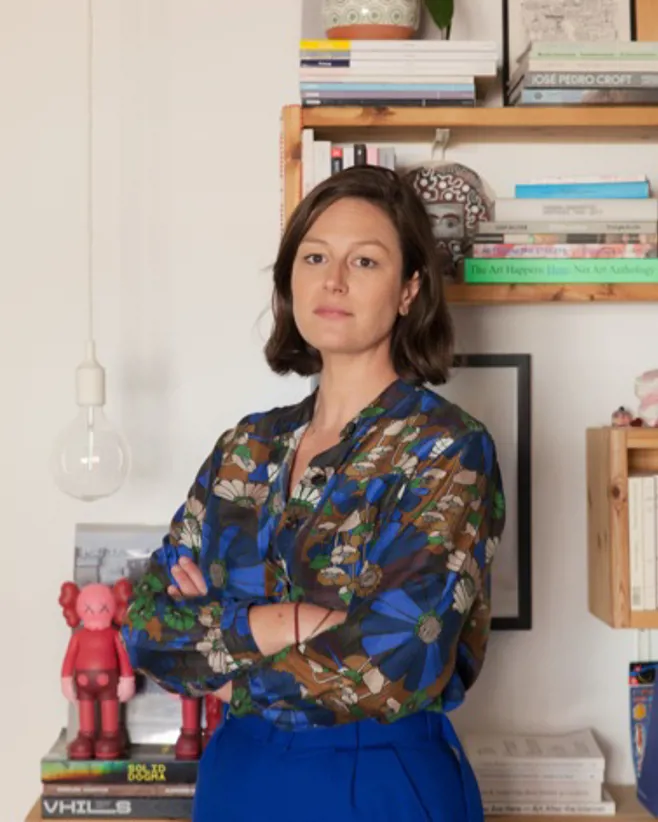
Pauline Foessel
Blockchain technology, new digital art mediums, and the NFT market come with big promises: a more inclusive and equitable landscape for creators and collectors, a stronger sense of ownership of our own data and creations, and customized experiences that far exceed today’s limits. As Foessel told us, “It's complex, but I think the more creators there are in the space, the more tools there will be for people to get on board without any complexity.”
Further Lisbon
Amid the heady world of web3, Pauline Foessel, founder of the industry-disrupting art platform Artpool, has a way of bringing digital art back down to earth.
Further Lisbon
Amid the heady world of web3, Pauline Foessel, founder of the industry-disrupting art platform Artpool, has a way of bringing digital art back down to earth.
Among these creators is neuroscientist and psychologist Francisco Marques-Teixeira, who founded MuLabs to explore how art and technology can impact health and well-being. Through MuLabs and its spin-off MuArts, he uses sensors to show people their own emotions and uses music and visual art, which he calls biometric art, to translate those emotions. “We want to mainstream this technology and we believe that art is the best way to do this, because people connect with art,” Marques-Teixeira tells us.
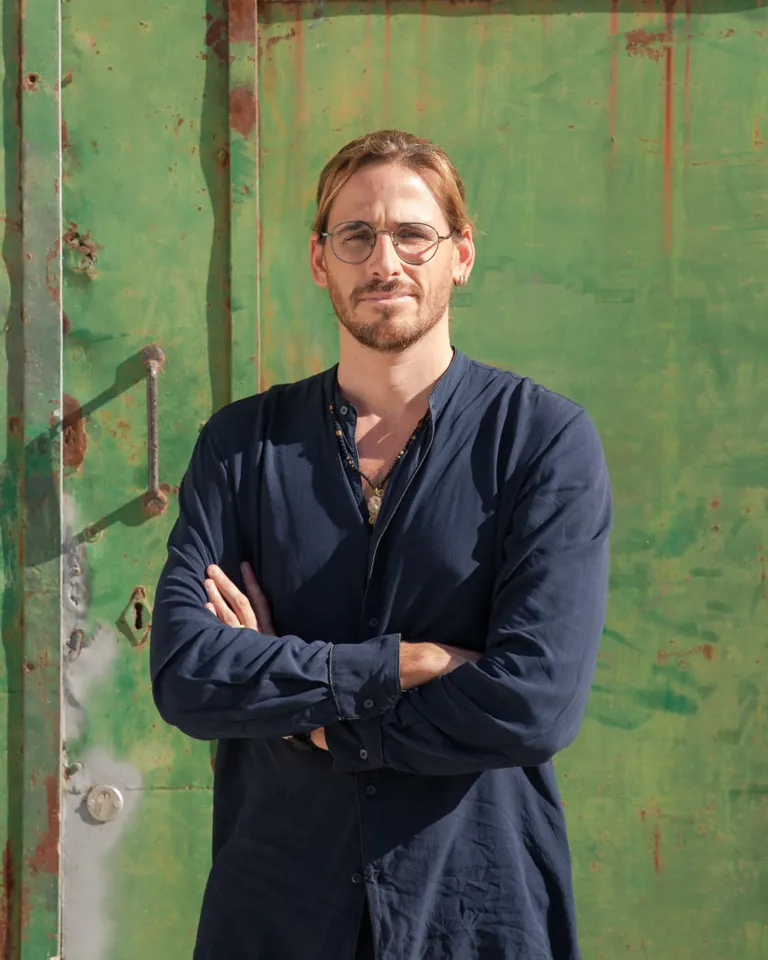
Francisco Marques-Teixeira founded MuLabs to explore how art and technology can impact health and well-being.
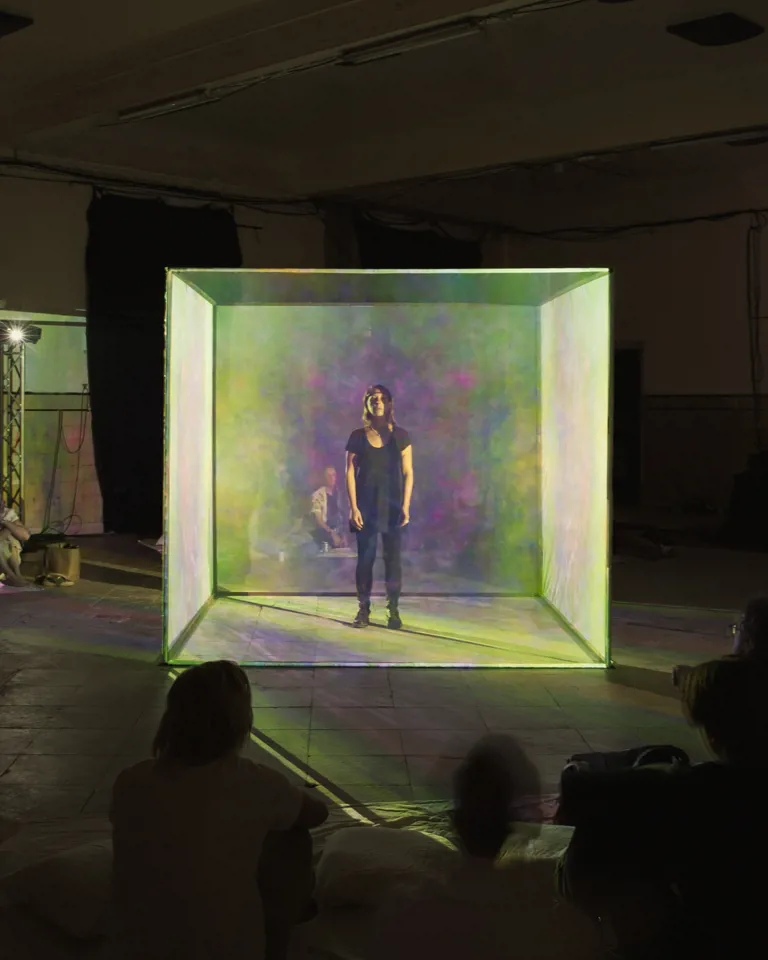
In the Voxel Cube installation, the artist controls the audio-visual feedback in real time through modulating brainwaves.
Further Lisbon
Along with artist Carlotta Premazzi, neuroscientist, psychologist, and co-founder of MuLabs Francisco Marques-Teixeira is translating the range of human emotions into art.
Further Lisbon
Along with artist Carlotta Premazzi, neuroscientist, psychologist, and co-founder of MuLabs Francisco Marques-Teixeira is translating the range of human emotions into art.
At Further Lisbon, MuLabs arranged a performance of this technology in partnership with multimedia artist and designer Carlotta Premazzi. In the piece, Premazzi stands at the center of a fabric-wrapped cube while the screen comes to life with a visual interpretation of her state of mind while a musical interpretation plays overhead. “I used to draw when I was younger, but video art and live mixing is my medium because I can escape from reality. Now, I paint with my computer.”
Ultimately, Marques-Teixeira hopes that this technology can help people gain awareness about themselves and even enhance their abilities. “My favorite thing about what I do is helping people know more about themselves and understand how they act and how they react to the world.”
Like Premazzi, Portuguese performance artist and architect Ana Renata Polónia believes that technology has the power to enhance creativity. “I think it’s interesting for artists to do a little of everything—to know a bit about video, photography, NFTs, or whatever it is because this opens a lot of possibilities and you can work with very quick tools. This can bring another dynamic to the world—I think this is happening already.” At Further, Polónia analyzed the space we were standing in, a former bakery, and reimagined it through an installation that included dance, spoken word, video projection, and sound, helping to shift our minds from the physical realm to an imagined one. While technology is key to her work, the body remains essential to Polónia. “It’s like a somatic practice—I have to balance the speed of production, technology, and everyday life.”
At Further, Ana Renata Polónia analyzed the space, a former bakery, and reimagined it through a multimedia installation.
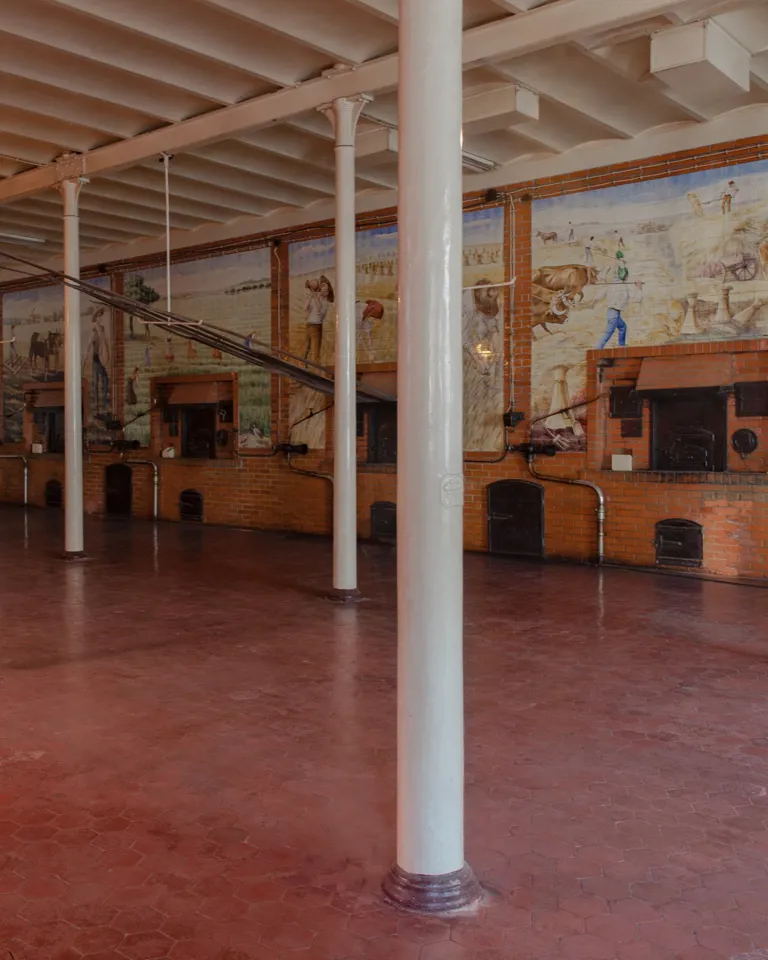
Using dance, spoken word, video projection, and sound, she helped to shift our minds from the physical realm to an imagined one.
With its physical cultural scene richly intact and nature on its doorstep, Lisbon reminds us that we can, and should, maintain a connection to the physical realm. “DVDs didn’t kill cinema, and NFTs are not going to kill physical art. It’s just one more possibility to do cool stuff,” the artist Dadara says. At Further, Dadara walked us through his journey through mediums, which spans drawing, performance art, and now, digital art. “In Silicon Valley, tech feels really far away from the soul and from art. But to me, it seems that in Portugal there’s this vibe where tech is connected to the human soul.”
At Further, Dadara walked us through his journey through mediums, which spans drawing, performance art, and now, digital art.
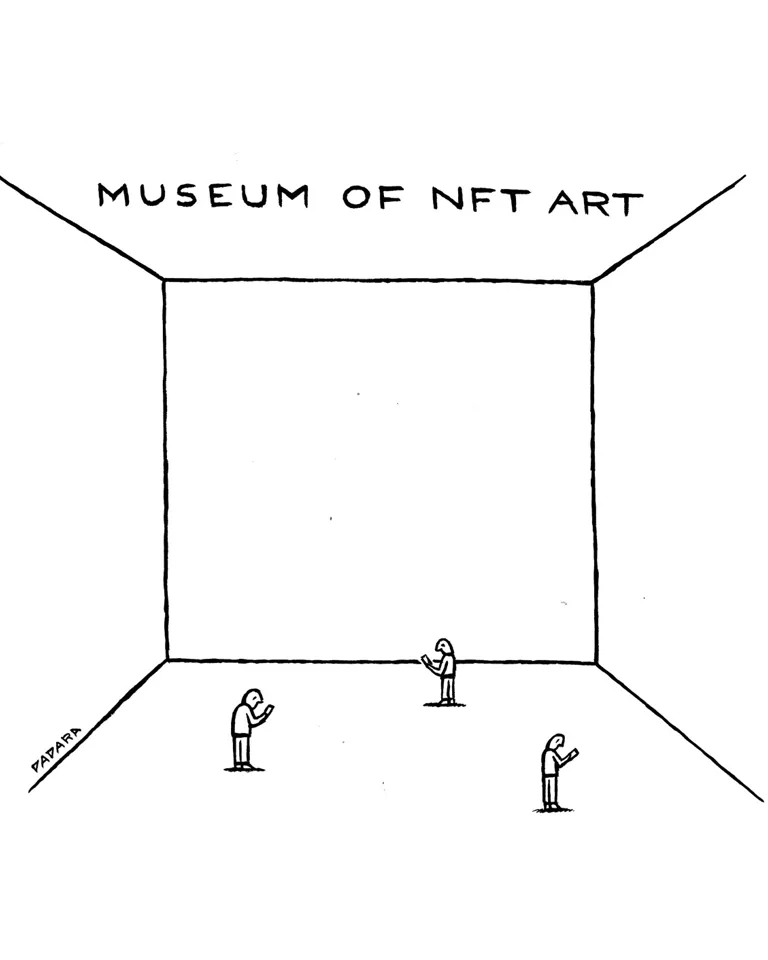
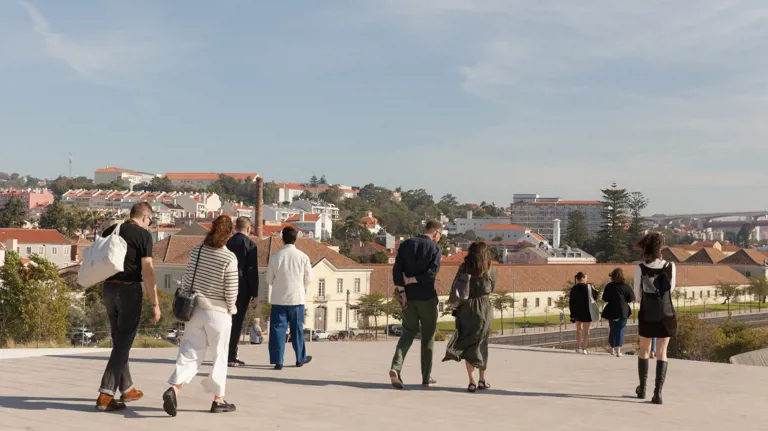
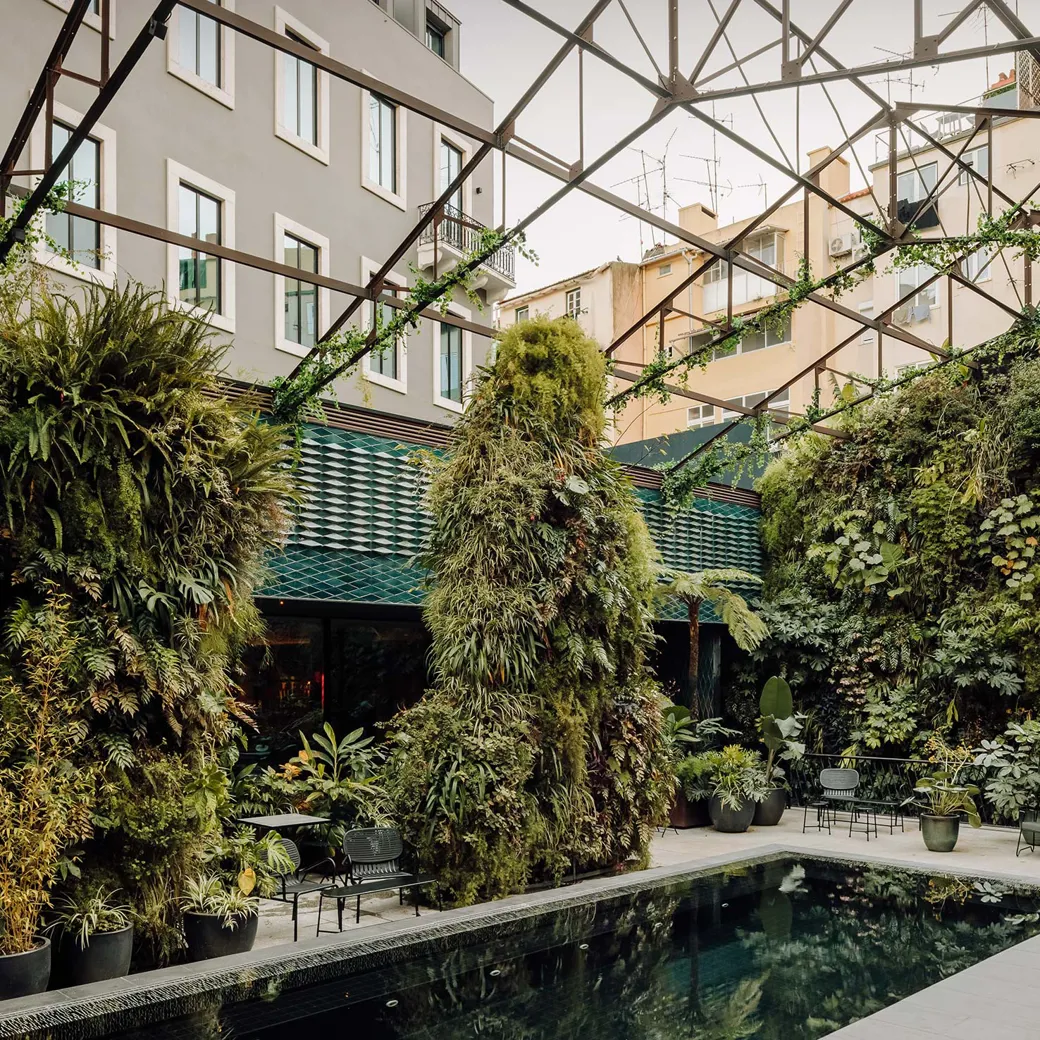
As much a social center as a hotel, this Lisbon renegade brings creative locals to the forefront, connecting the visitor to the pulse of the city and the neighborhood.